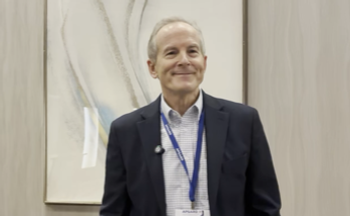
Fauci Addresses Attendees at APA Annual Meeting
In his William C. Menninger Memorial Lecture, Anthony S. Fauci, MD, shared lessons learned and remaining challenges for the COVID-19 pandemic, especially in terms of mental health and behavioral issues.
CONFERENCE REPORTER
“Globally, as of the 25th of April, there have been close to 150 million cases and over 3 million deaths,”
Fauci, who became the face of COVID-19 in the United States, providing a voice of reason and information from the onset of the pandemic, was invited to deliver the William C. Menninger Memorial Lecture. In introducing Fauci, APA President Jeffrey Geller, MD, MPH, commended Fauci for his “communication of science, the courage in the face of adversity, and the energy he brings to his work,” adding that this commitment “should inspire all of us.”
In his talk, “Lessons Learned and Remaining Challenges,” Fauci succinctly reviewed the epidemiology, clinical course, therapeutics, and vaccines associated with COVID-19, providing attendees with a clear picture of where we have been, where we are, and where we need to go.
Fauci acknowledged the progress we have made in the fight against the pandemic. However, he warned, “Even though we are now below the late fall extraordinary peak [of cases] that we saw that went into the early winter of January and early February [of more than 200,000 new cases per day], we are now stuck on plateau that is precarious, at around 60,000 new infections a day.”
The looming variants have become a particular concern. Currently, the B.1.1.7, originally found in the United Kingdom, has become the predominant variant in the United States, he said. Fortunately, the vaccines seem to do well against this variant, he added. Other variants include B.1.351, originally found in South Africa and problematic on multiple fronts; P.1, originally found in Brazil; B.1.427/B.1.429, originally found in California; and B.1.526 originally found in New York.
The unusual aspect of the virus is that at least a third, and as much as 40%, of the individuals who are infected never have symptoms, yet the virus has been deadly in so many individuals, Fauci noted. Because of this, about 35% of all transmissions were from presymptomatic individuals and 24% from those who never developed symptoms. This, he said, added to the complication of controlling the spread of the virus.
Currently, there are 3 types of test for SARS-CoV-2: molecular tests that detect genetic material from virus; antigen tests that detect proteins from the virus; and antibody tests that detect proteins in the blood made in response to the virus. Symptoms and affects include
In addition to the acute infection, there is a syndrome called “
The pandemic’s effects, especially on mental health, have not been limited to patients infected with the virus. Fauci pointed to a new study of 5470 US adults that found 41% reported
Another concern, according to Fauci, is the continued
In a
There have been “considerable challenges,” Fauci concluded, “but we are doing extraordinarily well. And we hope the next few weeks we see a dramatic remediation in the number of cases.”
References
1. Logue JK, Franko NM, McCulloch DJ et al.
2. Czeisler MÉ, Lane RI, Wiley JF, et al.
3. Hamel L, Lopes L, Kearney A, Brodie M.
Newsletter
Receive trusted psychiatric news, expert analysis, and clinical insights — subscribe today to support your practice and your patients.







